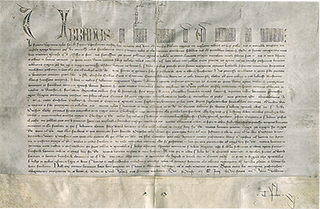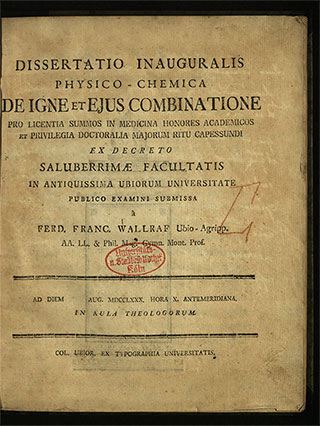Digital Dissertations of the Old University Cologne of the 17th and 18th Century
"... that from now on there should be a university in the city of Cologne, according to the model of the University of Paris, and that it should remain there forever," Pope Urban VI determined in the founding charter of the university of 21 May 1388.
The Old Cologne University was founded by a decision of the city council - the leading citizens of the city. This was extraordinary because the first universities in the empire were determined by the aristocracy: University in Prague in 1348 by Emperor Charles IV, the second in Vienna in 1365 by Archduke Rudolf IV and the third in Heidelberg in 1386 by Palgrave Ruprecht II.
"Following the model of Paris" meant that Cologne also received the right to award doctorates and lectures for doctorates and that all academic degrees earned at the university were equal to those of the Paris University. As in Paris, most of the students in Cologne were clerics. However, both canonical and imperial rights were taught in Cologne. Imperial law refers to Roman law, which was prohibited in Paris by Pope Honorius III in 1220. In addition, the statutes of the Faculty of Theology were enacted according to the model of the University of Vienna founded a few years earlier.
This so-called Old Cologne University existed for 410 years. In 1798 it was again like the university in Paris: In the context of the French Revolution both universities were closed, like all universities in France and in the area occupied by the French since 1794 (Mainz, Trier). It was not until 1919 that the university was re-established.
What is remaining ...
Historical dissertations online

This work (Digitale Sammlung Königsberger Dissertationen), identified by the University and City Library of Cologne, is not subject to any known copyright restrictions.
If you use our digitised documents, we would be pleased about the citing of our name.
This collection is marked with Open Access.
Open Access refers to the worldwide free access to scientific publications on the Internet, subject to copyright protection. No legal or financial barriers should stand in the way of the reader worldwide.
Open Access at the University and City Library of Cologne


